When I say stomach acid some people stare blankly or nod with vague disinterest, others flinch. They are confronted with memories of the last time they experienced heartburn or acid reflux. This may have kept them awake or in pain for hours.
Stomach acid has a bit of a bad name. We’re constantly trying to calm it down with over-the-counter antacids or home brews of baking soda in water. Unfortunately these things may be making the problem worse. Because what we are trying to calm down is actually an important part of what keeps us alive.
Why is stomach acid important?
Stomach acid, containing hydrochloric acid (HCl) and several other acids is important for two main reasons:
1) It’s part of our innate immune system.
This is the immune functions that every person is born with, our body’s natural defenses against infection. Stomach acid works by being too acidic for a lot of the small pathogens (bacteria, virus, fungi) to survive. These may come from food or accidentally from our hands, surfaces or the air we breath.
Having sufficient stomach acid can protect us from food borne pathogens which can cause gastroenteritis and food poisoning (1). When we take acid-blocking medications or substances that reduce our stomach acidity, we may be increasing our risk of contracting these illnesses.
2) It’s the key to our whole digestive process.
Without sufficient stomach acid, the rest of our digestive process, further down in our small intestines doesn’t work as well.
Stomach acid does a lot of the grunt work when it comes to breaking up big particles of chewed food into smaller particles (4). Small food particles are worked on by digestive enzymes in our intestines, and the nutrients are removed and absorbed. Stomach acid is essential for digesting protein and absorbing nutrients like zinc, iron and vitamin B12. It is the acid entering into the small intestines, from our stomach that helps trigger the release of all other digestive enzymes in our small intestines.
Food is not broken down properly when we have insufficient stomach acid. It passes into our intestines, our digestive enzymes aren’t triggered and we can’t absorb all the wonderful nutrients contained in the food because they stay locked up in the food particles. The partially digested food particles then end up in our large intestines, where our gut bacteria ferment them and produce gas which can cause bloating, flatulence, pain and digestive discomfort.
Over-time this half functioning process can lead to significant nutritional deficiencies, worsening digestive discomfort, damage to the lining of the gut, over-growth of “bad bacteria” in the large intestines and increased food intolerance (3).
How do you know when you have low stomach acid?
Regular acid reflux or heartburn.
One of the key signs you might have low stomach acid is if you suffer from the symptoms we often associate with too much stomach acid (3). Insufficient stomach acid means the food you eat stays in your stomach for longer, rather than being released bit by bit into your small intestines. It sits there in your stomach, mixed with acid and then can start pushing back up into your esophagus causing the sensation of reflux or indigestion that many of us have experienced. Antacids help symptomatically here by putting an alkaline barrier on top of the acid, relieving the symptoms but in the long term potentially worsening the problem.
Nutrient deficiencies.
Low iron, vitamin B12, zinc or magnesium may be a sign of low stomach acid (2) (3) because we need the acid to be able to absorb these from our food.
Bloating, feeling full for a long time after eating or poor appetite.
This can be another sign of low stomach acid. This is because the whole digestive process is just being slowed down and half done which as described above can cause bloating and other symptoms.
Frequently catching stomach bugs.
Stomach acid is a first line defense against ingested pathogens that can cause stomach bugs (1).
Weak fingernails or weak and falling hair.
We need sufficient nutrients in our body to grow strong hair and nails. Without enough nutrients our body will send what we do have to the most important organs and tissues. While we think our hair and nails are important, when it comes to survival, your body thinks otherwise.
Who is at increased risk of low stomach acid?
People taking acid blocking medications are more likely to have low levels of stomach acid. There is evidence to suggest that these can result in low levels of stomach acid, and the symptoms of reflux they experience may be mistaken for excess stomach acid (3).
As we age, our ability to make adequate stomach acid and other digestive enzymes reduces (5), possible due to compounding of nutritional deficiencies with medication side effects and reduced overall protein intake. For this reason, it is not uncommon for middle age to elderly people to suffer more from low levels of stomach acid. Underdeveloped cells lining a babies stomach can mean they also, produce less stomach acid. This could be a factor in colic/reflux and why why introducing foods too early can be a problem.
Chronic stress is a major issue when it comes to stomach acid production. Digestive function goes by the wayside when we are stress, as our body focuses all its energy on survival. If this is for a short time, that’s fine, but many of us live in a state of long term chronic stress which can be a big part of the problem.
People who habitually eat in a rush and people who don’t chew enough may be more likely to have low stomach acid. Chewing is one of the ways we signal our stomach to let it know food is coming and to get it producing stomach acid. When we eat in a hurry and don’t chew enough, this message doesn’t make it through and the result is low levels of stomach acid.
Poor diet in general is going to increase the risk of reduced stomach acid production. Insufficient protein, insufficient vegetables and excess refined carbohydrates can all contribute to lower levels of stomach acid.
What do you need to make stomach acid?
Stomach acid is made by the one of the three specialist cells that line the entire surface of stomach called parietal cells. In the most basic sense, there are two key nutrients we need to have to make stomach acid.
- Zinc – this is commonly deficient in a lot of people. It is found in some foods, like oysters and other seafoods, also red meat, notably lamb. It is also found in smaller amounts in nuts and seeds, though it can only be in a food if it’s in the soil that the food grows in. Sadly, New Zealand soils are not known for being rich in zinc. Zinc is used in the body for 100’s of different functions and easily becomes deficient as our needs are high. It’s also less likely to be absorbed from the food we eat if our stomach acid is low, so it can be a snow balling deficiency.
- B vitamins – especially B1 and B6. These are found in egg yolks, red meat, fish, nuts, seeds, beans and a lot of other foods actually. They are not hard to get by eating a well balanced diet. Rather the issue is, they are water soluble, meaning they can’t be stored in the body and need to be supplied on a daily basis. Like zinc they are also used for a lot of functions in the body and are depleted by stress and high refined carbohydrate intake.
What can we do to naturally improve stomach acid levels?
Take time with your food.
We eat in such a rush these day, often buying takeaways which we have had no part in preparing. Eating on the go and in a rush while focusing on something else and not chewing our food sufficiently. All these things reduce our stomach acid production.
The first sensory messages our brain receives, to prepare our stomach for food are smelling and anticipating food. Buying a quick takeaway side-steps this first step. We don’t stop to eat so we eat often eat in a state of mild stress, which means our body is focused on keeping us safe rather than digesting our food.
We also don’t chew enough. Chewing action, along with the salivary enzymes released in our mouth when we chew help stimulate the release of stomach acid. So, slow down, take some long slow breathes before you start eating and chew your food well.
Avoid drinking water with meals.
Drinking water with a meal can dilute any acid you do have. So keep water intake 30 minutes either side of food intake.
Try apple cider vinegar (ACV).
This strong acid helps to stimulate your own acid production. Start by taking 1 TBSP of ACV in 30ml of warm water 10 minutes before a meal, then build up to 2 TBSP if needed.
Add some fermented foods to each meal.
Things like sauerkraut, kimchi, kombucha, yoghurt. These contains enzymes which can help to supplement our own digestive enzymes and stimulate their production for improved digestion (7).
Supplements.
Supplementing with a good zinc and B vitamin complex may help to address deficiencies of these micronutrients.
Digestive enzyme supplements with pepsin and betaine HCL are also available and can be helpful to support digestion.
Cheers to stomach acid, with a shot of ACV of course.
Producing enough stomach acid is a foundational factor for good health. It’s a simple biological function that holds so much power, and it’s simple interventions which make it hum along well. We just need to understand it’s importance.

